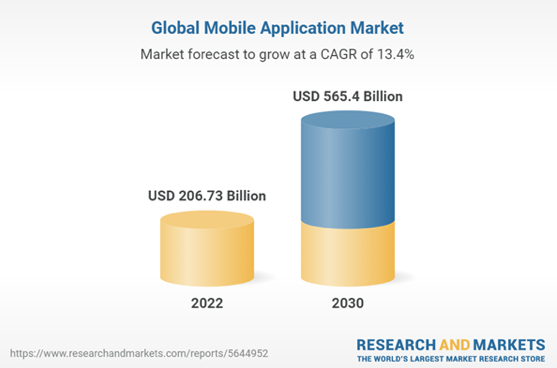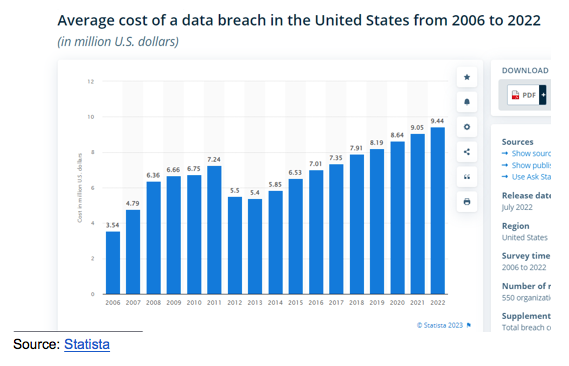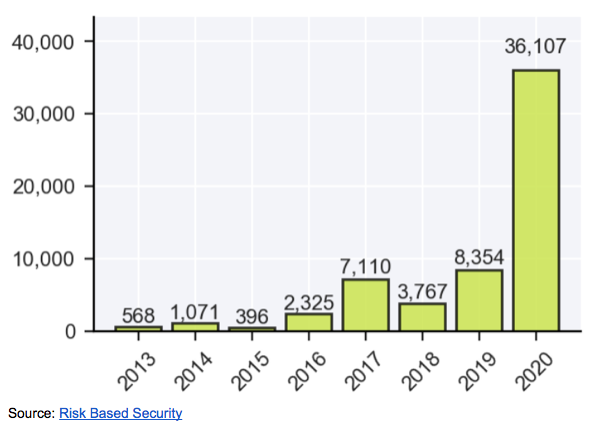Data Management in Mobile Apps: Best Practices for Ensuring Security and Compliance
April 20, 2023, a year ago

Mobile apps have become an indispensable part of our lives, with millions of businesses relying on them to reach their customers. However, with the rise of mobile app usage, the need for secure and compliant data management has become a major challenge for businesses.
According to a recent report by Verizon, nearly 25% of all data breaches involve mobile devices, highlighting the vulnerability of mobile apps to cyber attacks.
As more businesses shift towards mobile app-based operations, it becomes increasingly important to understand the best practices for ensuring data security and compliance in mobile apps.
With the global mobile app market projected to grow to over $565 billion by 2030, the stakes have never been higher.

Failure to implement proper data management practices can result in devastating consequences, including loss of customer trust, legal and regulatory penalties, and financial losses.
In this article, we will explore the challenges faced by businesses in ensuring data security and compliance in mobile apps, and discuss the best practices for data management.
Why Effective Data Management is Essential for Mobile App Security and Compliance
The amount of data generated by mobile apps is enormous, and businesses need to manage it effectively to ensure that their users' personal and sensitive information is safe.
According to a report by Kensington, over 70 million smartphones are lost or stolen each year, and many of them contain sensitive information such as credit card details, passwords, and confidential business information. This highlights the need for businesses to ensure that their mobile apps are secure and compliant with data protection regulations.
"Developing secure and compliant mobile apps requires a holistic approach that considers not only technical measures but also user privacy, legal requirements, and industry standards." - Finoit Technologies
Failing to manage data effectively can have severe consequences. Over 100 million customers were impacted by a data breach suffered by Capital One in 2019. The breach was caused by a misconfigured firewall in the company's cloud infrastructure, which allowed hackers to access sensitive data. The incident cost the company over $300 million in losses and remediation costs.
As mobile app usage continues to grow, it is essential for businesses to prioritize data management to protect their users' sensitive information and avoid costly data breaches. So, let's dive in and explore how businesses can effectively manage data in their mobile apps.
Top 5 Strategies for Ensuring Security and Compliance in Mobile App Data Management
Below we have discussed data management best practices for ensuring security and compliance in mobile apps. In addition to following these practices, businesses can also seek out bespoke software development services to ensure that their mobile app is built with security and compliance in mind from the start. We will cover various strategies to safeguard user data, comply with relevant regulations, and manage data breaches.
1. Understand the Data Lifecycle
Data lifecycle refers to the various stages that data goes through during its lifespan, from creation to disposal. Understanding the data lifecycle is crucial for effective data management. It helps businesses to identify where data is stored, who has access to it, and how it is used.
According to a report by Statista, the average cost of a data breach in the U.S. in 2022 was $9.44 million. This shows how important it is for businesses to have a clear understanding of their data lifecycle to minimize the risk of a data breach.

The data lifecycle consists of six stages: creation, collection, storage, use, sharing, and disposal. Each stage presents unique challenges, and businesses must address these challenges to ensure data security and compliance.
2. Safeguard User Data
One of the most critical aspects of data management is safeguarding user data. This includes protecting user data from unauthorized access, ensuring that data is stored securely, and implementing strict data access controls.
According to a report by GWU, 43% of data breaches involve social engineering, such as phishing attacks or pretexting. Therefore, it is essential to educate users about the risks of social engineering and implement measures to prevent these attacks. This includes implementing two-factor authentication, using complex passwords, and training users to identify and report suspicious activity.
Furthermore, businesses should ensure that user data is stored securely. Additionally, businesses should implement strict data access controls to ensure that only authorized individuals have access to sensitive data.
3. Implement Encryption
Encryption is a security measure that converts plain text information into ciphertext to prevent unauthorized access, making it one of the most efficient ways to protect user data.
According to a report by the Breach Level Index, the number of records lost or stolen due to data breaches reached 36 billion in 2020.

Source: Risk Based Security
The implementation of encryption can effectively decrease the likelihood of data breaches by impeding hackers' ability to gain access to sensitive information. Therefore, it is recommended that businesses apply encryption to data both while in transit and at rest.
4. Ensure Compliance with Relevant Regulations
Data management in mobile apps must comply with relevant regulations, such as the General Data Protection Regulation (GDPR) and the Health Insurance Portability and Accountability Act (HIPAA). These regulations govern how businesses collect, use, store, and share user data.
Non-compliance with these regulations can result in significant financial penalties and reputational damage. The highest GDPR fine to date was $877 million imposed on Amazon in 2021.
Businesses must understand the specific requirements of each regulation and implement the necessary measures to comply with them.
5. Train Employees on Data Security Best Practices
Employees are a crucial factor in ensuring data security and compliance. According to IBM research, employee negligence was responsible for 63% of internal data breaches, with an average annual cost of USD 11.45 million.
Businesses must provide their employees with regular training on data security best practices.
Training employees on data security best practices can reduce the risk of data breaches caused by human error or malicious intent. It can also help businesses to comply with regulations that require employee training, such as GDPR.
Bottom Line
As mobile app usage continues to grow, ensuring the security and compliance of user data is more critical than ever. Businesses must take a proactive approach to data management by implementing the best practices discussed in this article.
By prioritizing the above best practices, businesses can build trust with their users and avoid costly legal repercussions.
For those who lack the necessary expertise, partnering with a top-rated mobile app development agency can be a smart move. They can offer valuable insights and guidance to help businesses navigate the complex landscape of mobile app data management and ensure the safety and privacy of their users.











